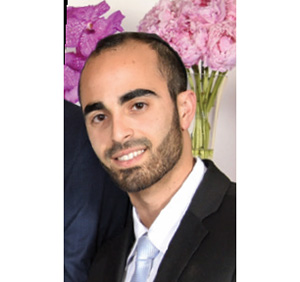
As Yitzchak enters the “parsha” for shidduchim, his father—Avraham Avinu—sends Eliezer on a mission to find a suitable spouse for him. Eliezer established that the critical factor in determining who would be suitable would be someone who has good character traits, a baalat chesed—one who is a giver and involved in acts of kindness. So Eliezer ventures out with his camels to Aram Naharaim. When he gets there, he goes to the well of water and waits for the time when the young women would go out to the well. While waiting, he determines that the following would be a sign that such a person is suitable for Yitzchak and possesses the right middot: “And it will be, [that] the maiden to whom I will say, ‘Lower your pitcher and I will drink,’ and she will say, ‘Drink, and I will also water your camels,’ her have You designated for Your servant, for Yitzchak…”
As Eliezer stands by the well, Rivka walks toward it. The pasuk tells us that as soon as Eliezer watched Rivka begin to draw water, he raced toward her. The Midrash questions why Eliezer raced forward to greet Rivka. It answers that as Rivka went to draw water, Eliezer saw a miraculous event. As she lowered her bucket, the water in the well rose to greet her. Therefore Eliezer ran to greet this maiden, as this was a spiritual individual who must truly be Yitzchak’s “bashert” (pre-ordained spouse).
Yet, as R’ Mordechai Kamenetzky points out, despite seeing such a miracle, which should have indicated that Rivka was “the one” for Yitzchak, why did Eliezer nevertheless go ahead and “test” Rivka by asking the pre-planned questions? Indeed, he still asked her for water, to see if she would go above and beyond—to not only give him to drink but also his camels! But if such a miraculous event occurred, why did Eliezer continue with this pre-planned act? Why did he ask Rivka for water and wait until she responded by offering drinks to both him and his entourage? Wasn’t the miracle enough to prove that she was Yitzchak’s bashert?
R’ Kamenetzky explains that although Eliezer was emotionally impressed by the miraculous rising waters [which caused him to run toward her], he composed himself. Despite being emotionally stimulated, Eliezer understood that miracles were not the criteria needed to become Yitzchak’s wife. Rather, he knew that character transcends any miracle or genius.
On the one hand, Eliezer was emotionally pulled by the “razzle dazzle” of a miracle, while on the other hand, he used his intellect—the more rational and concrete aspect of decision making—to bring himself back to focus on what was the essential at hand, namely to fully determine that this person was a person of proper character.
Sure, we learn from here a lesson in shidduchim, one who is looking for a proper spouse: not to be pulled by the immaterial and temporary infatuation, but rather to stay level-headed and determine that the person at hand is one who carries the potential and character traits that are important for a lifetime and to build a home. However, perhaps the lesson learned from Eliezer is more universal and applies to all walks of life. In life, we are always in the position of being “sold,” whether it’s by society’s values, a salesman’s persuasions, or simply by the emotional and lustful pulls that are part and parcel of our being, or any other instance. Much of the way we are “gotten” is when we make decisions based on the razzle dazzle that is sparked by our emotions. The drama that advertising and social media portrays, the impeccable pitch by the seller, the display of inspiration by the eloquent speaker or writer, or anytime our emotions or desires “get the best of us,” this is a time where we can learn from Eliezer to look beyond the gleam and glimmer and stay level-headed by remaining firm to our values and act based on what we know is right.
Binyamin Benji is a graduate of Yeshivas Rabbeinu Yitzchak Elchanan, and Wurzweiler School of Social Work. He currently learns in Eretz Yisroel, and is the author of the Sephardic Congregation of Paramus’ weekly Torah Talk. He can be reached at benjibenji26@gmail.com.










